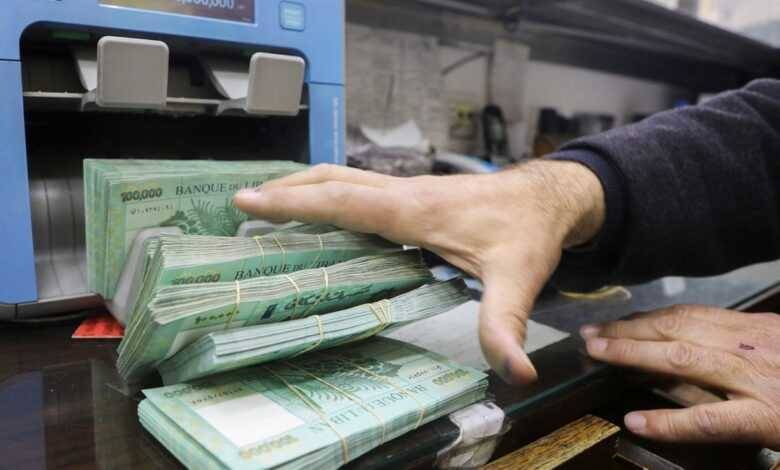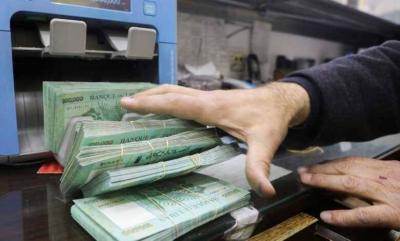On September 16, under pressure from the streets led by many retired military members, the Parliament approved a threefold increase in public sector salaries, effective once the budget is passed as a comprehensive law published in the Official Gazette. However, this step was accompanied by a rise in the customs dollar price and an announcement about unifying the dollar exchange rate. Certainly, what has been given to the public sector without any guarantees for its financing will be taken back, especially since there are no revenues in the budget to cover the increase, but rather a deficit reaching 15 trillion, and more importantly, in the absence of any actual economic rescue plan.
In contrast, in the first week of October, the Minister of Labor in the caretaker government, Mustafa Bayram, announced that the Salary Index Committee would meet soon to discuss recent developments regarding salaries, wages, and transportation allowances in the private sector, noting that he would call for the committee's meeting. Amid the minister's enthusiasm and the private sector workers' eagerness to improve their conditions, are the circumstances ripe for the committee to meet? What numbers will be discussed?
The representative of employers in the Salary Index Committee, Vice President of the Industrialists Association in Lebanon, Ziad Bakdash, denied any knowledge of "any near call for a committee meeting soon despite what was published in the media in recent days, and what the Minister of Labor in the caretaker government Mustafa Bayram stated before the presidential palace." He mentioned to "An-Nahar" that the problem at hand is that "about 4 or 5 months ago, it was agreed that the minimum wage would be 2,600,000 Lebanese pounds instead of the 2,000,000 Lebanese pounds, with transportation allowances raised from 60,000 pounds to 95,000 pounds daily."
He expressed surprise at "the positive atmosphere published in the media between the bodies and the labor union, while to this day no new increase figures have been discussed between the two parties." He added that "during the last meeting of the bodies, the issue of proceeding within the private sector with a minimum wage equivalent to one hundred dollars was raised, to be linked to its exchange rate in the market along with the transportation allowance to be approved. However, this proposal fell through due to the difficulties faced by some sectors and their inability to implement this mechanism, knowing that the industrial sector is committed to this minimum wage along with the transportation allowance."
For his part, the President of the General Labor Union, Dr. Bashara Asmar, told "An-Nahar": "During consecutive meetings with the President of the Economic Bodies, Muhammad Shuqair, the importance of reconsidering salaries and wages in the private sector was discussed, along with the associated school grants and family allowances. It is essential for the Salary Index Committee to hold its meeting as soon as possible, and we have urged Minister Bayram to do so, especially since another topic will be brought before the committee regarding a draft law to convert end-of-service compensation into a pension on an optional basis for contributors to the social security fund. As for correcting wages in the private sector, it is not possible to determine increase figures as the preference remains for gradual increases that justly compensate employees and workers without burdening institutions and companies. These increases are expected to be included in the core salary and considered in social security contributions and related compensations."
Asmar revealed that today to secure a minimum of decent living for a worker, it should not be less than 20 million Lebanese pounds monthly, compared to the escalating inflation rates. Furthermore, it should not be neglected that the positive impacts of this increase on social security contributions could help the fund meet its obligations towards contributors. Regarding the delay in issuing the decree related to the increase of 600,000 Lebanese pounds to date, he points out that "there are some political obstacles that contributed to diverting the decree from its normal legal pathway, after it was decided that due to the existence of a caretaker government, it must be signed by the Ministers of Labor and Finance and the Prime Minister and President before its publication in the Official Gazette."
He emphasized that "efforts are underway to resolve this issue with all concerned parties, noting that some in the private sector face problems in fully reporting the value of contributions to the social security fund, while others comply with it. Certainly, incorporating the increase of 600,000 Lebanese pounds into the core salary has several positive effects on salary supplements such as overtime and others."
Regardless of the seriousness of the upcoming meeting of the Salary Index Committee, if political developments allow of course, it is necessary to take into account the level of inflation that outpaces any decision regarding increases or salary corrections, knowing that the outcome is always in the form of a deal and aligns with the saying "the wolf doesn't die and the sheep doesn't perish."
It is worth mentioning that with just 6 ranks difference, Lebanon would have ranked first globally on the "worst" quality of life index, as Beirut ranked 242 out of 248 cities around the world included in an international report. Concurrently, Beirut ranked first regionally in the cost of living among Arab cities, advancing to 12th globally, approaching the reference cost in New York City, which is adopted as a measurement standard. The cost of living index there reached 95.65 points, only 4.35 percent lower than the reference unit, which is set at 100 points for New York.
The purchasing power level of citizens in Beirut declined from 47.18 points (before the crises) to just 11.73 points during 2022. Furthermore, Lebanon ranked first globally on the World Bank's food price inflation index, surpassing Zimbabwe, which came in second, and Venezuela in third. Aren't these indicators sufficient to engage in any wage discussions courageously and scientifically, away from populism and political interventions?




